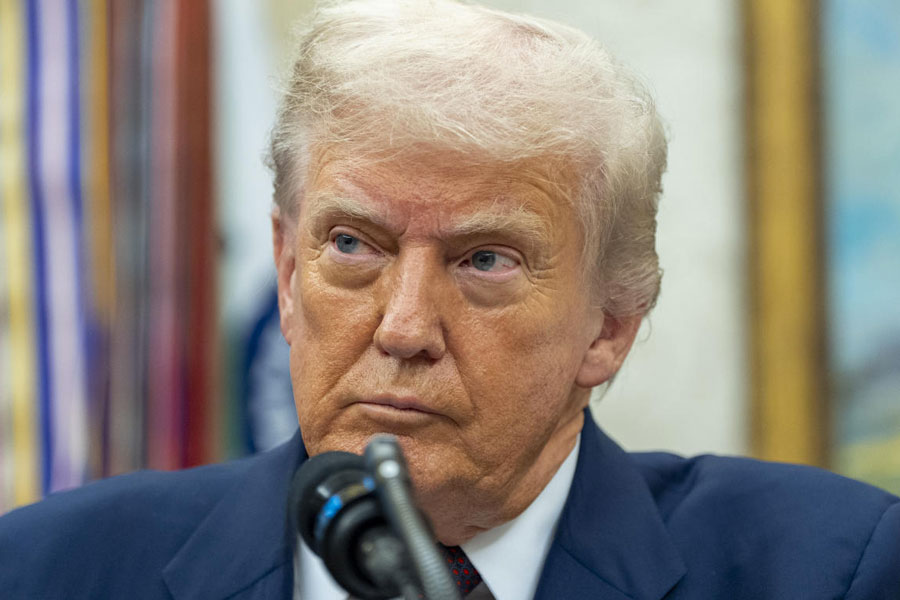U.S. President Donald Trump on Thursday demanded the immediate resignation of Intel's new CEO, Lip-Bu Tan, calling him "highly conflicted" due to his ties to Chinese firms and raising doubts about the future of the American chip icon.
A change in leadership could pile pressure on the company as it pushes through a major strategic reset started by Tan that aims to slash costs by shrinking its workforce and halting construction on some of its planned manufacturing plants.
Trump's comments came a day after Reuters reported U.S. Republican Senator Tom Cotton had sent a letter to Intel's board chair with questions about Tan's ties to Chinese firms and a recent criminal case involving his former firm Cadence Design.
Reuters reported in April that Tan - himself or through venture funds he has founded or operates - invested in hundreds of Chinese companies, some of which are linked to the Chinese military.
"There is no other solution to this problem," Trump said in a post on his Truth Social platform, knocking shares of Intel down around 4% in U.S. premarket trading.
Intel is a key pillar of U.S. efforts to boost domestic chipmaking and last year secured nearly $20 billion in grants and loans, the largest federal award under the 2022 CHIPS and Science Act, to subsidize leading-edge semiconductor production.
Intel and Tan, who took over the CEO role in March after the ousting of his predecessor Pat Gelsinger late last year, did not immediately respond to Reuters requests for comment.
An Intel spokesperson said in a statement on Wednesday that "Intel and Tan are deeply committed to the national security of the U.S. and the integrity of our role in the U.S. defense ecosystem." The company said it would address the matters in the letter with the Senator.
The Intel CEO invested at least $200 million in hundreds of Chinese advanced manufacturing and chip firms between March 2012 and December 2024, Reuters reported in April.
A source familiar with the matter had at the time told Reuters that Tan had divested from his positions in entities in China, without providing further details.
Chinese databases reviewed by Reuters at the time had listed many of his investments as current, and Reuters was at the time unable to establish the extent of his divestitures.
Once the dominant force in chip-making, Intel has in recent years lost its manufacturing edge to Taiwanese rival TSMC. It also has virtually no presence in the booming market for artificial intelligence chips dominated by Nvidia.
To revive Intel's fortunes, Tan has set a goal of slashing the chipmaker's workforce to 75,000 people by year-end, a reduction of around 22%. Intel also vowed to take a more disciplined approach to manufacturing investment.










